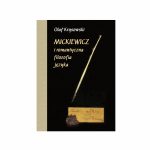
Światowa Republika Przekładu. Rola transferów w tworzeniu pól literackich i nurtów w humanistyce w Europie Środkowej i Wschodniej od XIX do XXI wieku
____
The World Republic of Translation. The role of transfers in creating literary fields and trends in humanities in Central and Eastern Europe from the 19th c. to the present
Wrocław, 18-19.11.2024
Informacje ogólne / General informations
Refleksja nad literaturami oraz kulturami Europy Środkowej i Wschodniej wykorzystuje perspektywę postkolonialną do badania problemów związanych z miejscem regionu w europejskiej nowoczesności, której nieodłączną stroną była kolonialność władzy. Centrum Badań Dyskursów Postzależnościowych, naukowa sieć badawcza w Polsce, rozwinęło własną krytyczną perspektywę, podkreślając zasadniczą różnicę polskiego (a także regionalnego) doświadczenia historycznego i kulturowego wobec doświadczenia kolonii europejskich imperiów, lecz we wspólnym paradygmacie władzy imperium.
W 2024 roku doroczna konferencja Centrum Badań Dyskursów Postzależnościowych poświęcona będzie zjawisku transferów kulturowych oraz ich roli w tworzeniu pól literackich, szkół krytycznych oraz dyskursów humanistycznych. Interesuje nas sposób, w jaki konteksty polityczne i społeczne wpływały na polityki i strategie transferów literackich i myśli humanistycznej od XIX do XXI wieku. Konferencja ma na celu prześledzenie dynamiki i różnorodności takich wpływów, a następnie nakreślenie topografii transferów przekładowych w krajach i regionach Europy Środkowej i Wschodniej, która pokaże zarówno szlaki hegemonii, jak i ścieżki transnarodowej wymiany dyktowanej wzajemnymi inspiracjami, a nawet oporem wobec hegemonicznych trendów.
Przekład pełnił i pełni ważną rolę w rozwoju języków literatury, w przemianach form literackich, poetyk i perspektyw. To za sprawą inspiracji poprzez granice języków literatura może być zarazem kosmopolityczna i zakorzeniona. Badanie przekładów ujawnia wzorce wpływów i przepływów kulturowych i literackich. To zaś zachęca do zadawania pytań o politykę przekładu: o przesłanki implikowane w tych wzorcach, wdrażane zarówno przez instytucje kultury i życia społecznego, jak i przez wpływowe ośrodki kreujące pola literackie: czasopisma, wydawnictwa, szkoły krytyczne i akademickie oraz autorytet tłumacza.
Również transfery myśli humanistycznej są niezmiernie istotnym zjawiskiem dla badania trajektorii wpływów. Perspektywa postkolonialna, postzależnościowa lub dekolonialna pozwala dostrzec w owych transferach struktury dominacji na zglobalizowanym rynku kultury badać procesy decydujące o hegemoniach w różnych polach intelektualnych.
Europa Środkowa i Wschodnia to przykład nierówności w systemie transferów kulturowych. Kartografie hegemonii i zależności ujawniają kulturową politykę światowości/uświatowienia w rozumieniu Edwarda Saida i Gayatri Chakravorty Spivak. „Światotwórczy” efekt transferów literackich i nurtów w humanistyce chcielibyśmy poddać pod dyskusję zarówno w kontekście transformacji politycznych w krajach postkomunistycznych na przełomie lat 80. i 90. XX wieku, jak i procesów globalizacyjnych w kulturze oraz pozycji Europy Środkowej i Wschodniej na mapie wpływów kulturowych oraz szlaków przekładowych od XIX do XXI wieku.
Poniżej otwarta lista zagadnień wpisujących się w temat konferencji:
- modele literatury światowej, szczególnie te uwzględniające relacje hegemonii i podporządkowania;
- hegemonizacyjne i/lub dekolonizacyjne/emancypacyjne implikacje transferu kulturowego poprzez przekład;
- „gościnność słowa”: zadomowianie gatunków, stylów, trendów, szkół literackich oraz intelektualnych i akademickich;
- przekład w humanistyce: autokolonizacja czy uczestnictwo w przepływie uniwersalnych dyskursów naukowych/intelektualnych?
- literatury narodowe, regionalne, literatura mniejsza i wielojęzyczność – strefy graniczne w transferach literackich;
- przekład jako praktyka wiedzy granicznej (border gnosis), a inkluzywność i uznanie: biotranslacje, rdzenne onto-epistemologie,
- neuroróżnorodność, studia nad zwierzętami oraz inne nowe strefy przekładu;
- polityka kulturalna determinująca procesy transferów: trendy międzynarodowe, konteksty krajowe, rola instytucji (nagrody literackie, wspieranie przekładów);
- przekład jako dialog międzykulturowy i nośnik różnorodności kulturowej;
- przekład jako forma aktywizmu: konteksty dekolonialne, mniejszościowe, ekologiczne, polityczne;
- nieprzetłumaczalność w transferze literackim: nieprzetłumaczalność kontekstów społecznych, politycznych, kulturowych i językowych oraz ich (nie)możliwe przedstawienie w przekładzie.
________________________________________________________________________
Reflection on the literatures and cultures of Central and Eastern Europe uses a postcolonial perspective to explore issues related to the region’s place in European modernity, of which coloniality of power has been an integral part. The Postdependence Studies Centre, a scholarly research network in Poland, has developed its own critical perspective emphasizing the essential difference of Polish (as well as regional) historical and cultural experience vis-à-vis the experience of the colonies of European empires, but within the shared paradigm of the experience of coloniality.
The 2024 Postdependence Studies Centre annual conference will focus on the phenomenon of cultural transfers and their role in the formation of literary fields, critical schools and discourses in the humanities. We are interested in how political and social contexts have influenced the politics and strategies of literary and academic/intelectual transfers from the 19th to the 21st centuries. The conference aims to trace the dynamics and diversity of such influences, and then outline a topography of translational transfers in the countries and regions of Central and Eastern Europe that will show both the trajectories of hegemony and routes of transnational exchange dictated by mutual inspiration and, also, resistance to hegemonic trends.
Translation has played an important role in the development of literary languages, and in the transformation of literary forms, poetics and perspectives. It is through inspiration across language boundaries that literature can be both cosmopolitan and rooted. The study of translations reveals patterns of cultural and literary influences and flows. This, in turn, invites questions about the politics of translation: the rationale implied in these patterns, implemented both by the institutions of culture and social life and by the influential centers that create literary fields: journals, publishing houses, critical and academic schools, and the authority of the translator.
Also, transfers of discourses in the humanities is an extremely important phenomenon for the study of trajectories of influence. Through post-colonial/postdependence/decolonial critical perspectives, these transfers reveal structures of domination in a globalized cultural marketplace and make it possible for us to study processes that determine hegemonies in various intellectual fields.
Central and Eastern Europe is an example of inequality in the system of cultural transfers. The cartographies of hegemony and dependence reveal the cultural politics of worldliness and worlding in the sense developed by Edward Said and Gayatri Chakravorty Spivak. We would like to discuss the worlding effect of literary transfers and currents in the humanities both in the context of political transformations in postcommunist countries in the late 1980s and early 1990s, as well as globalization processes in culture and the position of Central and Eastern Europe on the map of cultural influences and translation routes from the 19th to the 21st century.
We would like to invite discussions on the following and related topics:
- world literature models, especially those taking into account relations of hegemony and subordination;
- hegemonizing and/or decolonizing/emancipating implications of cultural transfer through translation;
- „hospitality of the word”: the domestication of genres, styles, trends, literary schools, intellectual and academic currents;
- translation in the humanities: self-colonization or participation in universal academic and intellectual discourses?
- national literatures, regional literatures, minor literatures and multilingualism – border zones in literary transfers;
- translation as a practice of border knowledge (border gnosis) striving for inclusivity and recognition;
- biotranslations, indigenous onto-epistemologies, neurdiversity, animal studies and other new translation zones;
- cultural politics determining transfer processes: international trends, national contexts, the role of institutions (literary awards, support for translation);
- translation as intercultural dialogue and a vehicle for cultural diversity;
- translation as a form of activism: decolonial, minority, ecological and political contexts;
- Untranslatability in literary transfer: the untranslatability of social, political, cultural and linguistic contexts and their (im)possible representation in translation.
Data nadsyłania zgłoszeń konferencyjnych / Admission dates
Prosimy nadsyłać abstrakty do 300 słów wraz z krótką notą biograficzną oraz afiliacją (w jednym pliku) na adres: transferconference@gmail.com do 1.06.2024 r.
Opłata konferencyjna wynosi: 400 zł lub 100 Euro
Dalsze informacje organizacyjne zostaną przekazane uczestnikom spotkania do 15.06.2024
________________________________________________________________
Please send abstract proposals up to 300 words with a short bionote and affiliation (in one file) to the e-mail address: transferconference@gmail.com by 1.06.2024.
Conference fee: 400 PLN or 100 Euro
Acceptance notice will be issued by 15.06.2024.
Komitet Organizacyjny / Organizing Committee:
Dr hab. Dorota Kołodziejczyk, Instytut Filologii Angielskiej, UWr
Prof. dr hab. Joanna Orska, Instytut Filologii Polskiej, UWr
Dr Joanna Maj, Instytut Filologii Polskiej, UWr / Institut fuer Slavistik, TU Dresden
Alexis Angulo Martinez, UW
Mateusz Szczepaniak, UWr


